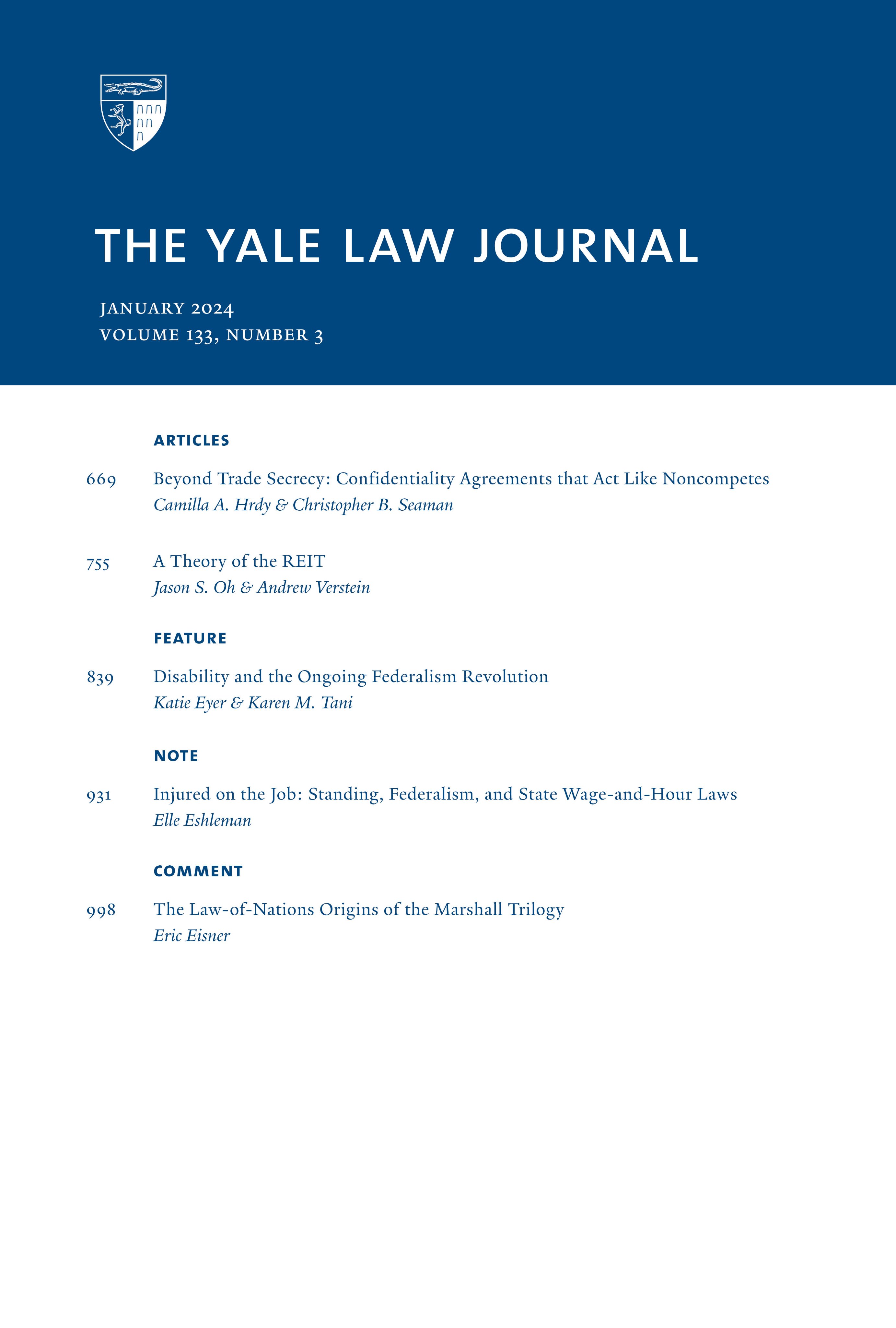A Cooperative Federalism Approach to Shareholder Arbitration
IF 5.2
1区 社会学
Q1 LAW
引用次数: 2
Abstract
128 Yale Law Journal Forum 169 (2018).Arbitration dominates private law across an ever-expanding range of fields. Its latest target, however, may not be a new field as much as a new form: mandatory arbitration provisions built into corporate charters and bylaws. Recent developments in corporate law coupled with signals from the Securities and Exchange Commission suggest that regulators may be newly receptive to shareholder arbitration. What they do next may have dramatic consequences for whether and how corporate and securities laws are enforced.The debate about the merits of arbitration is well worn, but its application to shareholder claims opens the door to a different set of responses. In particular, the overlapping authority of federal and state actors with respect to corporate law calls for approaches that sound in cooperative federalism. Yet cooperative-federalist approaches have been absent from recent debates about shareholder arbitration. This Essay explains why cooperative federalism is a natural fit for addressing these issues. Moreover, we marshal specific examples of cooperative solutions in this area that could help frame federal-state coordination going forward. Such a cooperative response would avoid unnecessary federal-state conflict and allow policymakers to approach shareholder arbitration with expertise, accountability, and mutual respect.合作联邦制对股东仲裁的影响
128耶鲁大学法律杂志论坛169(2018)。仲裁在不断扩大的领域中主导着私法。然而,它的最新目标可能不是一个新领域,而是一种新形式:将强制性仲裁条款纳入公司章程和章程。公司法的最新发展,加上美国证交会(sec)发出的信号,表明监管机构可能新近开始接受股东仲裁。他们接下来的行动可能会对公司法和证券法是否得到执行以及如何执行产生重大影响。关于仲裁是非曲直的争论由来已久,但将其应用于股东索赔,为一系列不同的回应打开了大门。特别是,联邦和州行为者在公司法方面的重叠权力要求采取在合作联邦制中听起来合理的方法。然而,在最近关于股东仲裁的辩论中,却没有出现合作联邦主义的做法。本文解释了为什么合作联邦制是解决这些问题的自然选择。此外,我们还列举了这一领域合作解决方案的具体例子,这些例子可能有助于构建联邦与州之间未来的协调。这种合作回应将避免不必要的联邦与州冲突,并允许政策制定者以专业知识、问责制和相互尊重的方式处理股东仲裁。
本文章由计算机程序翻译,如有差异,请以英文原文为准。
求助全文
约1分钟内获得全文
求助全文
来源期刊

Yale Law Journal
LAW-
CiteScore
4.50
自引率
6.20%
发文量
0
期刊介绍:
The Yale Law Journal Online is the online companion to The Yale Law Journal. It replaces The Pocket Part, which was the first such companion to be published by a leading law review. YLJ Online will continue The Pocket Part"s mission of augmenting the scholarship printed in The Yale Law Journal by providing original Essays, legal commentaries, responses to articles printed in the Journal, podcast and iTunes University recordings of various pieces, and other works by both established and emerging academics and practitioners.
 求助内容:
求助内容: 应助结果提醒方式:
应助结果提醒方式:


